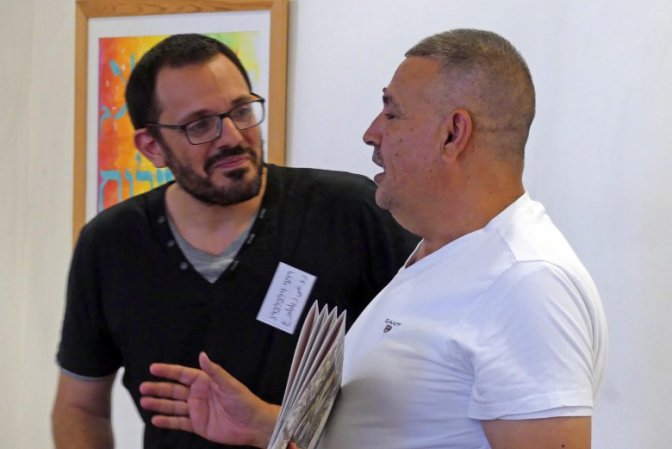Home > Oasis of Peace > Projects & Outreach > The School for Peace > New partnerships at the School for Peace
New partnerships at the School for Peace
Sunday 1 August 2021

The violence in May shocked many people into action, and the School for Peace has been involved in promoting peaceful actions and activities.
https://sfpeace.org/mobilizing-staf...Some of its graduates were involved in organizing peaceful demonstrations and emergency actions to prevent violence and protect their communities, and they received SFP support. In the city of Lydda, which was one of the foci of ethnic violence, the SFP staff has been facilitating meetings organized by alumni, and one is also facilitating a group of community leaders in Jaffa, many of them SFP graduates as well. The staff members are working with a core group of alumni to create a think tank on improving relations between Jews and Palestinians.
In fact, the SFP has become recognized for its expertise in working with organizations to enable members of both groups to cooperate on an equal footing, and many have approached the SFP for guidance and assistance following the May conflicts. These include Tel Aviv University, Hebrew University, Ichilov Hospital and more. See Organizational Consulting for Peace, Human Rights and Joint Action Organizations
Two new courses began at the School for Peace in June: one for Palestinian and Jewish lawyers, the other for environmental activists. The participants include several influential individuals, parliamentary aides, experienced human rights attorneys and department heads in established NGOs. In addition, the SFP has begun forging new partnerships. With Zochrot, an NGO that raises awareness of the tragedy that befell the Palestinian community in 1948, the SFP will teach a “Change Agents” course for tour guides. The Abraham Initiatives has joined the effort in enrolling municipal workers from Israel’s mixed cities for a “Leaders in Mixed Cities” program. Finally, the SFP is currently offering, for the first time, an English language course for staff and activists to give them the tools to express themselves to audiences abroad.
In June, two SFP courses came to an end. One of them, for performing artists, was offered for the first time this year. The projects for this course, which have yet to be presented, include, for some, participation in a theatrical protest event to take place in the Bedouin village of al-Araqib, which has been destroyed dozens of times by the state. The course participants will present their final projects at an event hosted by the SFP in August. The second was a lawyers’ course, one of the SFP’s most successful offerings.
In June, the SFP hosted a well-attended conference on the responsibilities of the social work system in building Jewish-Palestinian relations.
The SFP has also been providing support within the village, offering a workshop for teachers in the primary school, another one for parents, and one for the sixth graders leaving the school, who will be going on to other educational systems. The staff also held a panel discussion with village high school students on the dilemma of army service, which is mandatory for Jews.




